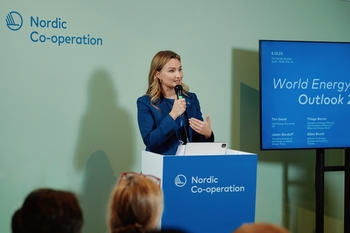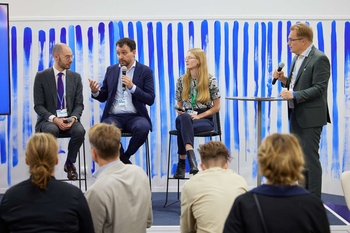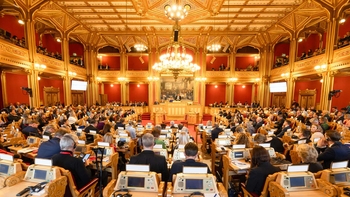On land, at sea, and in the air – in a sustainable region

Since Second World War to the modern day, traffic in the Nordic Region has developed tremendously, encompassing both private and public transport. This has been – and still is – largely beneficial for businesses and for mobility by sea, land, and air between the Nordic countries. However, it hasn’t been good for the climate for far too long. Transport accounts for almost a quarter of Europe’s greenhouse gas emissions and is the main cause of air pollution in cities.
Massive task to transform the entire transport sector
The Secretary General of the Nordic Council of Ministers, Karen Ellemann, explains how the organisation has long contributed to the green transition within transport and will continue to do so in the region:
“Transforming the entire transport sector and developing the new technologies needed is a massive task. It requires co-operation and a cross-sectoral approach. We need clean and safe energy and transportation. We need companies to deliver innovative solutions, we need to reduce emissions, and we need to think circularly and sustainably,” she said in her opening speech of the day.
A holistic approach
In the subsequent panel debate, challenges and solutions were discussed between
Peter Engdahl from the Swedish Energy Agency, Tommaso Selleri from the European Environment Agency, Anna Engholm from Greater Copenhagen, and Sveinung Oftedal from the Norwegian Ministry of Climate and Environment. Central elements here included the untapped potential that awaits in the transition of the maritime transport sector, and that the set-up of green transport in general should have a holistic approach. Moreover, there is the potential that also lies ahead in the development of Nordic co-operation within the electricity and energy sector.
Energy sector plays a central role
Klaus Skytte, director of Nordic Energy Research, agrees that the electricity and energy sector plays a central role.
“There’s tremendous potential for positive change in the energy sector. By embracing renewable energy sources, investing in clean technologies, and prioritising sustainable practices, we can revolutionise the transport sector,” says Skytte. With those words, the director set the stage for the presentation of five Nordic energy projects. They contribute to a comprehensive understanding of the challenges, new knowledge, and research that can accelerate the pace of innovation and reduce the duplication of work. The projects fall within Nordic Cross-Sectoral Co-operation:
• Nordic Roadmap – Future Fuels for Shipping
• Nordic Cycle Power Network
• Electric Aviation and the effects on the Nordic Region
• Hydrogen from Green Surplus Energy in Isolated Areas for Sea and Land-based Transport
• Heavy Duty Land-based Transport on Biomethane from Local Biogas and Green Hydrogen
The Nordic Green Transport Forum is organised by Nordic Energy Research with funding from the Nordic Council of Ministers.




